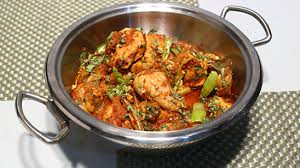Abstract:
The role of a head chef is integral to the success of any culinary establishment, be it a fine dining restaurant, a hotel, or a catering service. Aspiring chefs often wonder about the earning potential of this prestigious position. This comprehensive guide aims to delve into the factors that influence a head chef’s salary, including experience, location, and industry. By exploring various culinary career paths, analyzing salary data, and discussing the future outlook for head chefs, this article provides valuable insights for individuals interested in pursuing a culinary profession at the highest level.
Table of Contents:
- Introduction
- The Role of a Head Chef
- Factors Affecting Head Chef Salaries 3.1 Experience and Skill Level 3.2 Location 3.3 Type of Establishment 3.4 Education and Credentials 3.5 Industry and Market Demand
- Salary Ranges for Head Chefs 4.1 Entry-Level Head Chefs 4.2 Mid-Level Head Chefs 4.3 Executive Head Chefs
- Career Progression and Advancement Opportunities 5.1 Sous Chef 5.2 Executive Chef 5.3 Corporate Chef 5.4 Personal Chef
- Additional Perks and Benefits
- Job Outlook for Head Chefs
- Conclusion
- Introduction:
The culinary industry is renowned for its diverse career opportunities, and the role of a head chef stands out as one of the most prestigious positions. Apart from the passion for cooking, many aspiring chefs also want to understand the financial rewards that come with becoming a head chef. In this article, we will explore the factors that determine head chef salaries and provide a comprehensive analysis of the earning potential in this field.
- The Role of a Head Chef:
A head chef is responsible for overseeing all aspects of the kitchen, including menu planning, food preparation, quality control, staff management, and ensuring a seamless dining experience for customers. Their role extends beyond cooking, as they are also involved in budgeting, inventory management, and maintaining kitchen safety standards. The position demands creativity, leadership skills, and the ability to handle high-pressure situations.
- Factors Affecting Head Chef Salaries:
Several factors influence the salary of a head chef, and understanding these variables is crucial for individuals aspiring to reach this position.
3.1 Experience and Skill Level: Experience plays a significant role in determining a head chef’s salary. As chefs progress through their careers, they gain valuable knowledge and expertise that contribute to their earning potential. New head chefs typically earn less than those with extensive experience and a proven track record of success.
3.2 Location: The geographical location of the establishment greatly affects a head chef’s salary. Urban areas with a higher cost of living and bustling culinary scenes tend to offer higher salaries compared to rural or less populated regions. Factors such as local demand, competition, and the presence of renowned establishments influence the salary range for head chefs in a particular location.
3.3 Type of Establishment: The type of establishment also impacts a head chef’s salary. Fine dining restaurants, upscale hotels, and renowned culinary establishments often offer higher salaries due to their focus on quality, innovation, and premium dining experiences. On the other hand, casual dining restaurants, fast-casual chains, and smaller establishments may offer lower salaries.



































